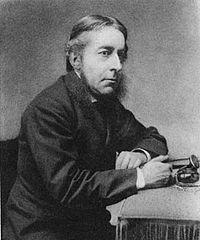George Eliot Quotes - Page 31

Her own misery filled her heart—there was no room in it for other people's sorrow.
George Eliot (2013). “Delphi Complete Works of George Eliot (Illustrated)”, p.332, Delphi Classics
It's but little good you'll do a-watering the last year's crops
George Eliot (2005). “Four Novels of George Eliot”, p.146, Wordsworth Editions
George Eliot (2015). “Middlemarch: (Penguin Classics Deluxe Edition)”, p.104, Penguin
GEORGE ELIOT (1868). “THE SPANISH GYPSY”, p.219
George Eliot (1876). “Daniel Deronda”, p.38
Great feelings will often take the aspect of error, and great faith the aspect of illusion.
George Eliot (2004). “Middlemarch: A Study of Provincial Life”, p.640, Broadview Press
"Silas Marner".
George Eliot (1839). “Theophrastus Such, Jubal and other poems and The Spanish gypsy”, p.374
George Eliot (2005). “Four Novels of George Eliot”, p.503, Wordsworth Editions
Robert Coles, George Eliot, George Orwell, Leo Tolstoy, Anthony Trollope (2007). “Political Leadership: Stories of Power and Politics from Literature and Life”, p.31, Modern Library
George Eliot (2004). “Middlemarch: A Study of Provincial Life”, p.400, Broadview Press
When a workman knows the use of his tools, he can make a door as well as a window.
George Eliot (1860). “The Mill on the Floss”, p.22
"Adam Bede". Book by George Eliot, 1859.
George Eliot (1872). “Middlemarch: A Study of Provincial Life. Book 1, Miss Brooke. 1[,1]”, p.52
George Eliot (2013). “Delphi Complete Works of George Eliot (Illustrated)”, p.3376, Delphi Classics
George Eliot (1839). “Theophrastus Such, Jubal and other poems and The Spanish gypsy”, p.439
George Eliot (2016). “Complete Works Of George Eliot”, p.1676, ShandonPress
It is strange how deeply colours seem to penetrate one, like scent.
George Eliot (1852). “Middlemarch”, p.15
George Eliot (1858). “Scenes of Clerical Life”, p.24
George Eliot (1869). “Silas Marner, and Scenes of Clerical Life”, p.168
To men who only aim at escaping felony, nothing short of the prisoner's dock is disgrace.
George Eliot (1873). “Wise, Witty, and Tender Sayings in Prose and Verse: Selected from the Works of George Eliot”, p.290






